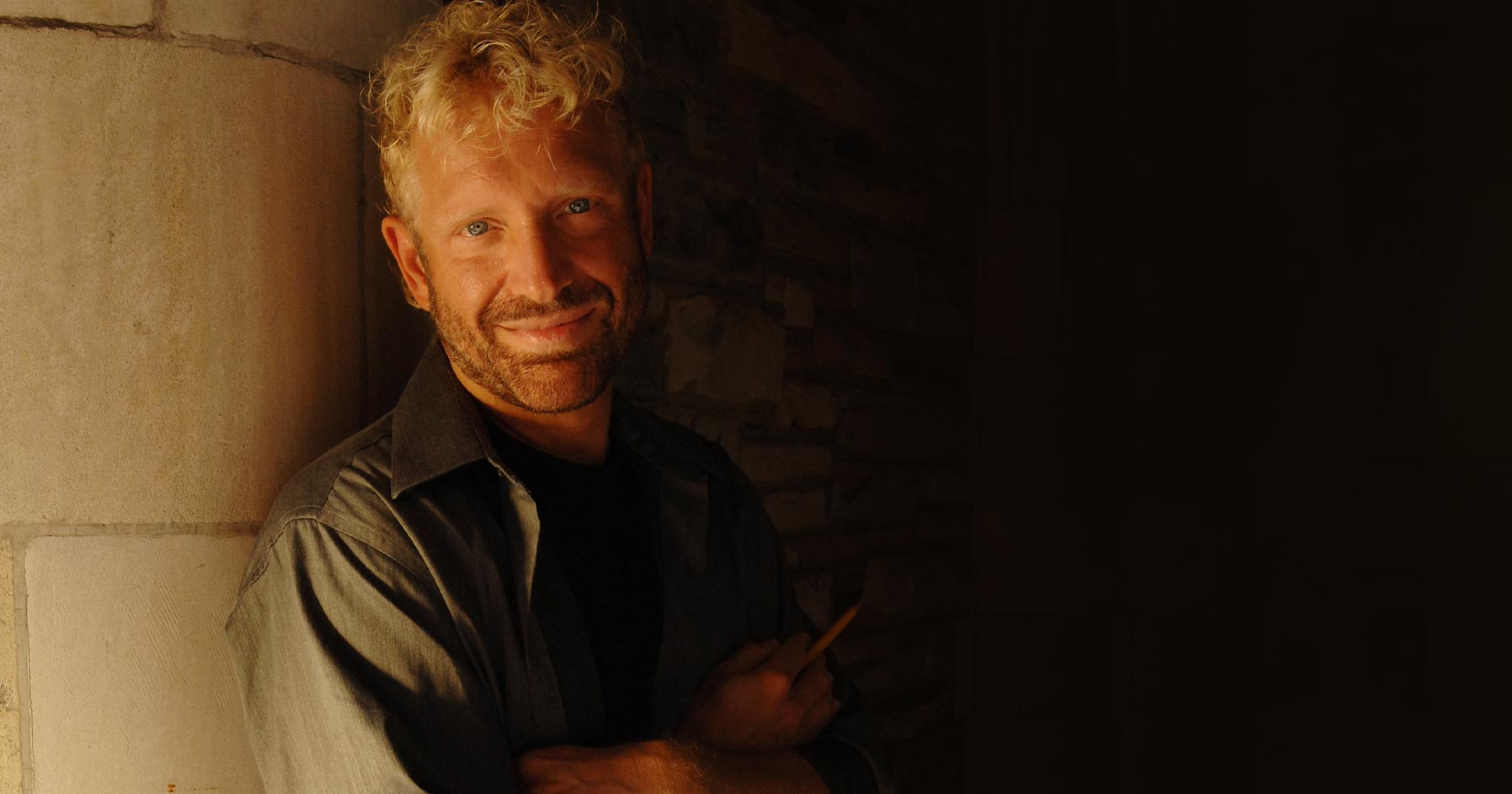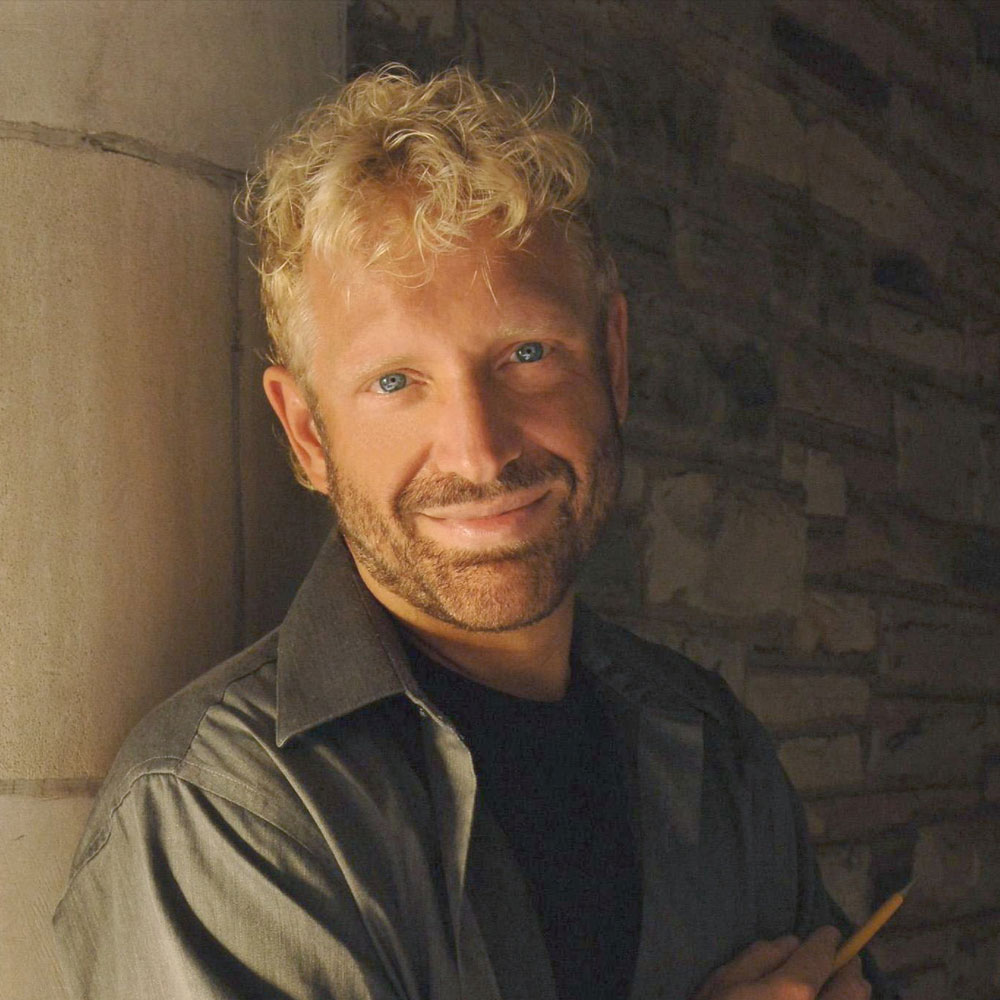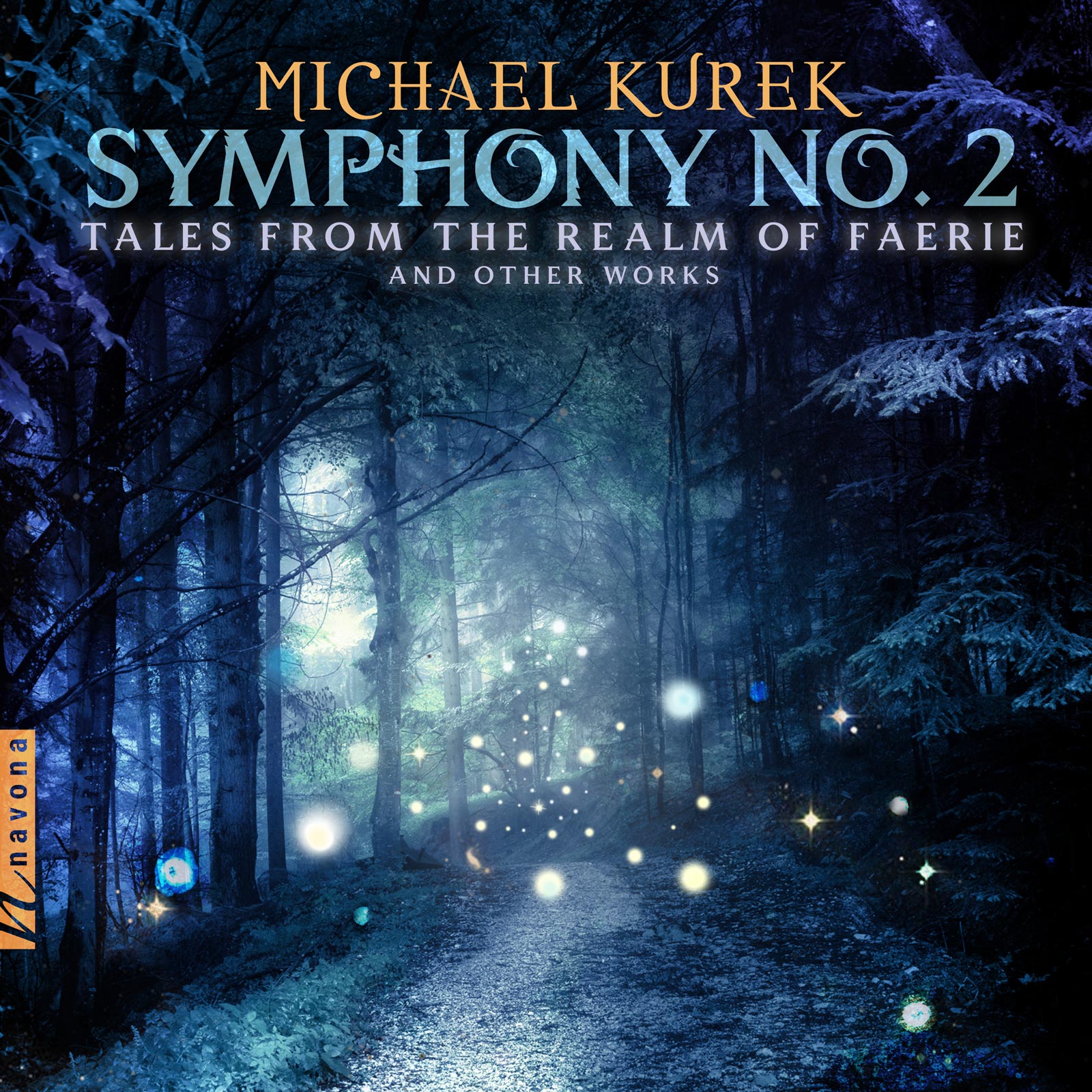
Navona Records presents Michael Kurek’s SYMPHONY NO. 2: TALES FROM THE REALM OF FAERIE, a rich musical tapestry intertwining the colors and characteristics of many fantastical worlds the composer has entered and loved. Kurek presents a dynamic assortment of work that keeps the spirit and heritage of classical music alive on this album.
Today, Michaek Kurek is our featured artist on “The Inside Story,” a blog series exploring the inner workings and personalities of our composers and performers. Read on to learn about the similarities he draws between cooking and composing, and how he applies the “tortoise and the hare” analogy to music…
What inspires you to write and/or perform?
Listening to great music that I love makes me want to go sit down and compose myself. I have known some musicians and composers who play or compose so much that they have no time to listen to long classical works by the masters any more. For me, that is the well-spring, the input, that feeds my creative impulse. More generally, I am inspired by the Transcendentals: Beauty, Truth, and Goodness. I don’t really compose “dark” music or negative commentary or music to warn people about climate change or other disturbing things. Call it escapist, but I want to write music that affirms, uplifts, and inspires positive emotions. I have gone back to the element of melody for this reason and because my gift and orientation has always been melodic, though I recognize that not every composer feels that way.
What advice do you have for young musicians?
To young composers, follow your own creative impulses, and pay no attention to the peer pressure and faculty pressure to conform to what the others in the school are writing, often to please their teachers or to impress each other. This takes courage. There is no such thing as “new music,” unless it refers to the fact that it was just written. There is no new or old, only either fashionable or timeless. Whatever you compose IS “new music” if you just wrote it, regardless of style. The fashionable will die out, and the timeless will live on. Yet if you are using a timeless style or technique, you must make it your own, just as you would have to make a novel or a recipe your own in some way. But it can still reflect the influences of a timeless tradition. Novelty for its own sake is not originality, but a personal voice generally. It takes decades to feel that you have mastered technique. Be content with the idea that you may not write anything lasting until you are middle aged. Determine to be the tortoise rather than the hare and forget about ego and “emerging composer” prizes.
Do you have any specific hopes about what this album will mean to listeners?
I do hope that listeners will want to hear it again and again, not just once or twice, which is to say that it speaks to their emotions and is not merely interesting. I want them to own and repeatedly play a good recording of it, because you simply cannot hear the same piece that often is in live concerts. Therefore, I find myself almost writing more for the sake of the recording than for the live concert. I hope that the album will contribute to the restoration of deep listening to music (and without multitasking) by non-classical listeners as much as by regular classical listeners. I hope that my music will lead those people in particular to discover other great classical music. I hope, for those who are discouraged that living classical composers only seem to compose now in modernist or postmodern styles, that a more traditional, narrative, tonal style is still viable and can still be learned and composed well and in a uniquely personal voice that is not merely commercial or derivative.
Where and when are you at your most creative?
In my home studio, early in the morning, with a cup of coffee. But I have also, over the years, had bursts of creative inspiration when standing or walking on the beach at the ocean or in a forest. I never have writer’s block and think that this is because I feed my soul with music, beautiful things, spirituality, and a full life. If you only live to compose, the well can run dry.
What are your other passions besides music?
I am married to a fine musical theater performer and enjoy going to see her in many musicals and also socializing with theater people (probably more so than socializing with musicians, truth be told). I am a foodie and very experienced cook and enjoy making wonderful recipes. I find that cooking is like composing, in that you are preparing something with love for others to enjoy, and there is usually a recipe, just as there is a sonata form, that generally guides you, but the fun is in improvising, adding a dash of this or that herb or spice that is not in the recipe, just as you might add a surprising dash of color in the orchestration.
Who are your musical mentors?
In younger days (when they were still alive, and though they did not write music like mine) I received great encouragement from Leonard Bernstein, Lukas Foss, George Rochberg, Leslie Bassett, and conductor Kenneth Schermerhorn, all of whom I knew pretty well and talked with many times. All of them told me they knew I would be a success and not to be discouraged when I was writing in a style of which other composers and critics sometimes harshly disapproved, or even mocked. I still hear their voices whispering those encouragements to me. As for musical mentors, in terms of the kind of musical style I love, I consider Sibelius, Vaughan Williams, Butterworth, Ravel, and Delius role models. Of course, my mentors in the basic craft of composition have to be Beethoven, Brahms, and Bach, as so much of my kind of music requires a mastery of narrative, form, harmony, and counterpoint.

American composer Michael Kurek’s music is receiving increasing acclaim for its lush, neo-traditional, melodic, and narrative style, reminiscent of the early 20th century symphonists. It has garnered performances by numerous symphony orchestras and chamber groups throughout the United States and in 15 countries on five continents, in addition to online streams in over 100 countries on six continents. His works have been heard nationwide on NPR and other countries’ national radio broadcasts, and have also been profiled in national print media and music journals.

